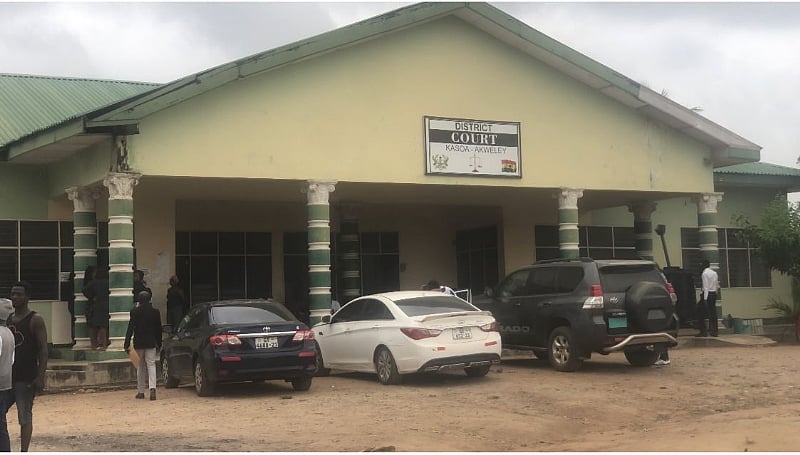The Awutu Senya East Municipal Assembly, through its Environmental and Sanitation Office, has initiated legal proceedings against individuals flouting sanitation regulations, signaling a renewed commitment to enforcing environmental laws and improving public health within the municipality. Three individuals were brought before the Akweley District Court on charges related to improper waste disposal and sanitation practices, highlighting the range of offences being targeted by the authorities. This action underscores a growing concern over the detrimental effects of unsanitary conditions on public health and the environment, and demonstrates the municipality’s resolve to address these issues through legal channels. The arrests and subsequent court proceedings serve as a deterrent to others engaging in similar practices, while also publicizing the ongoing efforts to improve sanitation standards within the community.
The specific charges brought against the individuals illustrate the scope of the sanitation challenges facing the municipality. Ebenezer Otoo faced charges related to the open dumping and burning of waste, a practice that poses significant risks to air quality and public health through the release of harmful pollutants. Margaret Yeboah was charged with the continued use of a pit latrine, an outdated sanitation method that can contribute to groundwater contamination and the spread of diseases. Abdul Aziz was initially charged with discharging wastewater into the open, a practice that can lead to the pollution of water bodies and the creation of unsanitary environments. These diverse charges reflect the multifaceted nature of sanitation issues and the municipality’s proactive approach to addressing them comprehensively.
The varying pleas entered by the accused individuals further highlight the complexity of enforcing sanitation regulations. While Ebenezer Otoo and Abdul Aziz pleaded guilty to their respective charges, Margaret Yeboah pleaded not guilty, necessitating further legal proceedings to determine her case. The acquittal of Abdul Aziz, based on his demonstrable rectification of the wastewater discharge issue, underscores the importance of compliance and the willingness of the court to recognize corrective actions taken by offenders. This instance also serves as an example to others that addressing sanitation violations can mitigate legal consequences. The granting of bail to Ebenezer Otoo and Margaret Yeboah, pending further court appearances, allows them to address the issues related to their charges while ensuring their presence for future proceedings.
The specific bail conditions imposed on Ebenezer Otoo and Margaret Yeboah reflect the court’s intention to ensure compliance with sanitation regulations. Otoo’s requirement to register with a waste management company underscores the importance of utilizing proper waste disposal channels and emphasizes the responsibility of individuals to manage their waste appropriately. The substantial bail amounts set for both individuals also serve as a deterrent against future violations. The adjournment of their cases provides them with the opportunity to rectify their respective sanitation issues and demonstrate their commitment to complying with the law.
The statements made by Mr. Paa Kwesi Asiedu, Environmental Health Officer in Charge of Prosecution, shed light on the ongoing challenges faced by sanitation officers in their efforts to enforce regulations. His reference to the “tankass,” a term associated with historical sanitation enforcement practices, underscores the continuing importance of maintaining public health and order, even as methods and terminology evolve. His cautionary words regarding the prosecution of individuals flouting sanitation laws reinforce the municipality’s commitment to enforcing these regulations and holding offenders accountable. The highlighting of challenges faced by sanitation officers, including threats of physical and verbal attacks emphasizes the difficulties encountered in carrying out their duties and the need for greater support and understanding from the community.
The appeal made by Mr. Asiedu for basic logistical support, including equipment such as rakes, wheelbarrows, dustbins, and brooms, underscores the resource constraints faced by the sanitation unit in effectively carrying out their duties. The lack of these essential tools hampers their ability to maintain cleanliness within the municipality and address sanitation violations effectively. His appeal highlights the need for investment in these basic resources to empower sanitation officers to fulfill their responsibilities and improve the overall sanitation conditions within the Awutu Senya East municipality. The proactive approach taken by the municipality in addressing sanitation issues through legal action, coupled with the identification of challenges faced by enforcement officers, underscores the importance of a collaborative effort between the authorities and the community in creating a cleaner and healthier environment for all.














